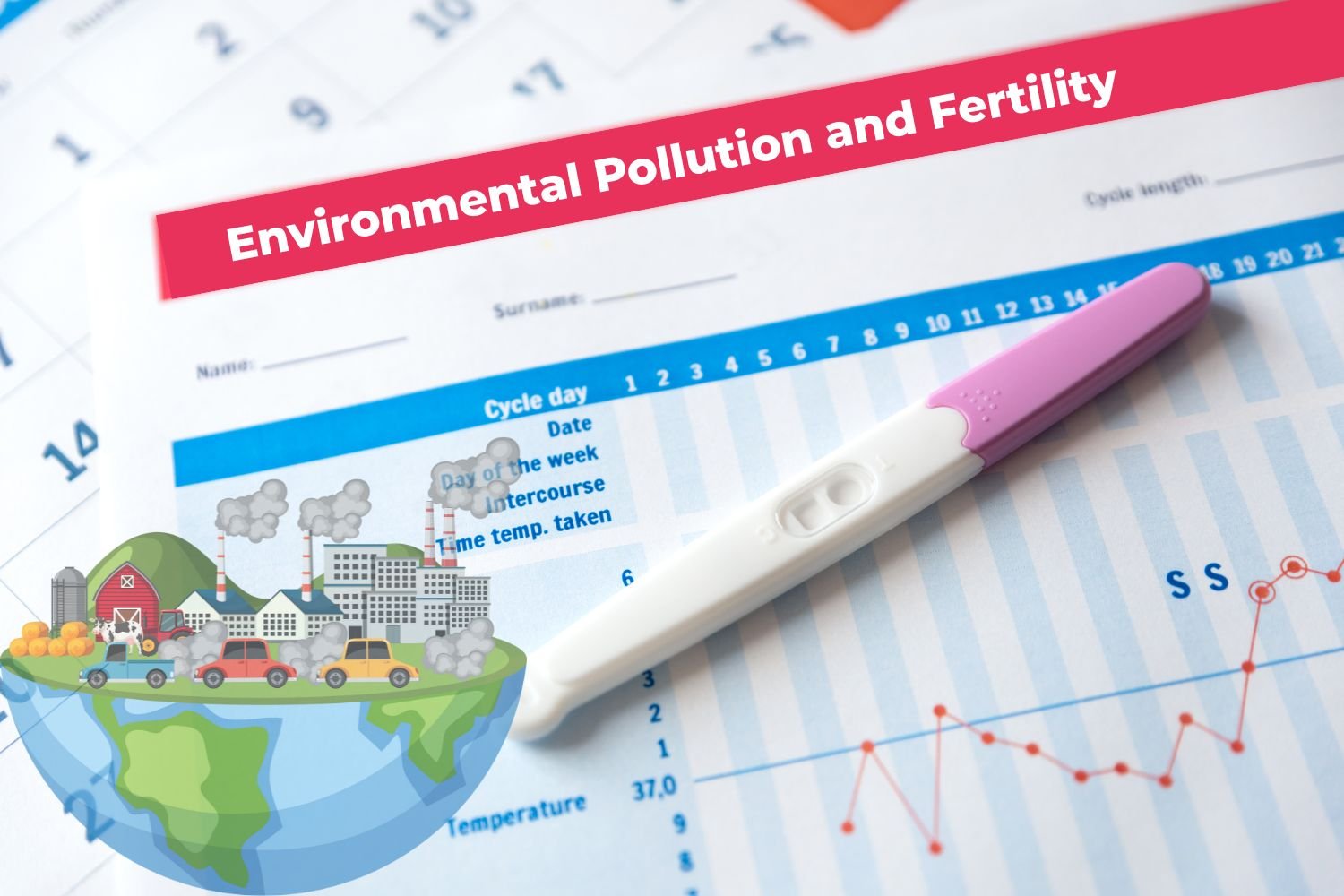When couples face difficulties conceiving, the focus often falls on medical issues such as hormonal imbalances or reproductive health conditions. But one growing factor that deserves more attention is environmental pollution. Modern lifestyles expose us to pollutants in the air, water, food, and even household products—many of which can significantly impact fertility in both men and women.
The Link Between Pollution and Fertility
Environmental toxins and pollutants can interfere with the body’s reproductive system in subtle yet powerful ways. These pollutants often mimic or disrupt hormones, creating an imbalance that can make conception more difficult.
Some of the most common pollutants linked to fertility issues include:
- Air pollution: Exposure to smog and fine particles can lower sperm quality and affect ovulation.
- Pesticides and chemicals in food: Many agricultural chemicals act as endocrine disruptors, which interfere with estrogen, progesterone, and testosterone levels.
- Plasticizers (like BPA and phthalates): Found in plastic bottles, packaging, and cosmetics, these chemicals can reduce ovarian reserve and lower sperm motility.
- Heavy metals (like lead and mercury): Long-term exposure may harm reproductive cells and increase the risk of miscarriage.
How Pollution Affects Female Fertility
For women, pollutants can disrupt the delicate hormonal balance required for ovulation and implantation. Studies suggest that exposure to high levels of air pollution and chemicals can:
- Reduce ovarian reserve (number and quality of eggs)
- Increase risk of irregular cycles and early menopause
- Interfere with embryo implantation during IVF treatments
- Raise the likelihood of miscarriage or pregnancy complications
How Pollution Affects Male Fertility
- Reduced sperm count and motility
- Higher levels of DNA fragmentation in sperm
- Hormonal imbalances that affect sperm production
- Increased risk of erectile dysfunction due to long-term chemical exposure
When both partners are exposed to environmental stressors, the chances of natural conception decline even further.
Can Lifestyle Choices Reduce the Impact?
While it’s impossible to avoid pollution completely, certain lifestyle choices can help minimize its effects:
- Choose organic foods: Limit exposure to pesticides and chemicals in produce.
- Avoid plastics: Store food in glass or stainless steel containers instead of plastic.
- Filter drinking water: Reduce exposure to heavy metals and harmful contaminants.
- Air purification: Use indoor plants or air purifiers to minimize indoor air pollution.
- Healthy living: Maintain a balanced diet, regular exercise, and stress management to strengthen reproductive health.
Seeking Medical Help
If you have been trying to conceive for more than 6–12 months without success, it’s important to consult a fertility specialist. Clinics like BUD IVF provide comprehensive fertility assessments, including tests to evaluate ovarian reserve, sperm health, and possible environmental factors. Advanced treatments such as IVF, ICSI, and fertility preservation can help couples overcome pollution-related challenges.
Takeaway
Yes, environmental pollution can affect fertility—and its impact is becoming more apparent as research grows. Pollutants in our surroundings may silently reduce reproductive potential in both men and women. The good news is that early lifestyle changes, regular health checkups, and expert medical guidance can help protect fertility and improve the chances of parenthood.
At BUD IVF Noida, we combine advanced fertility treatments with compassionate care to help couples achieve their dream of a healthy pregnancy—even in the face of environmental challenges.
If you’re experiencing symptoms or struggling to conceive, don’t wait. Book a consultation with our fertility experts at BUD IVF today. We’re here to help you navigate your options with clarity and care.






